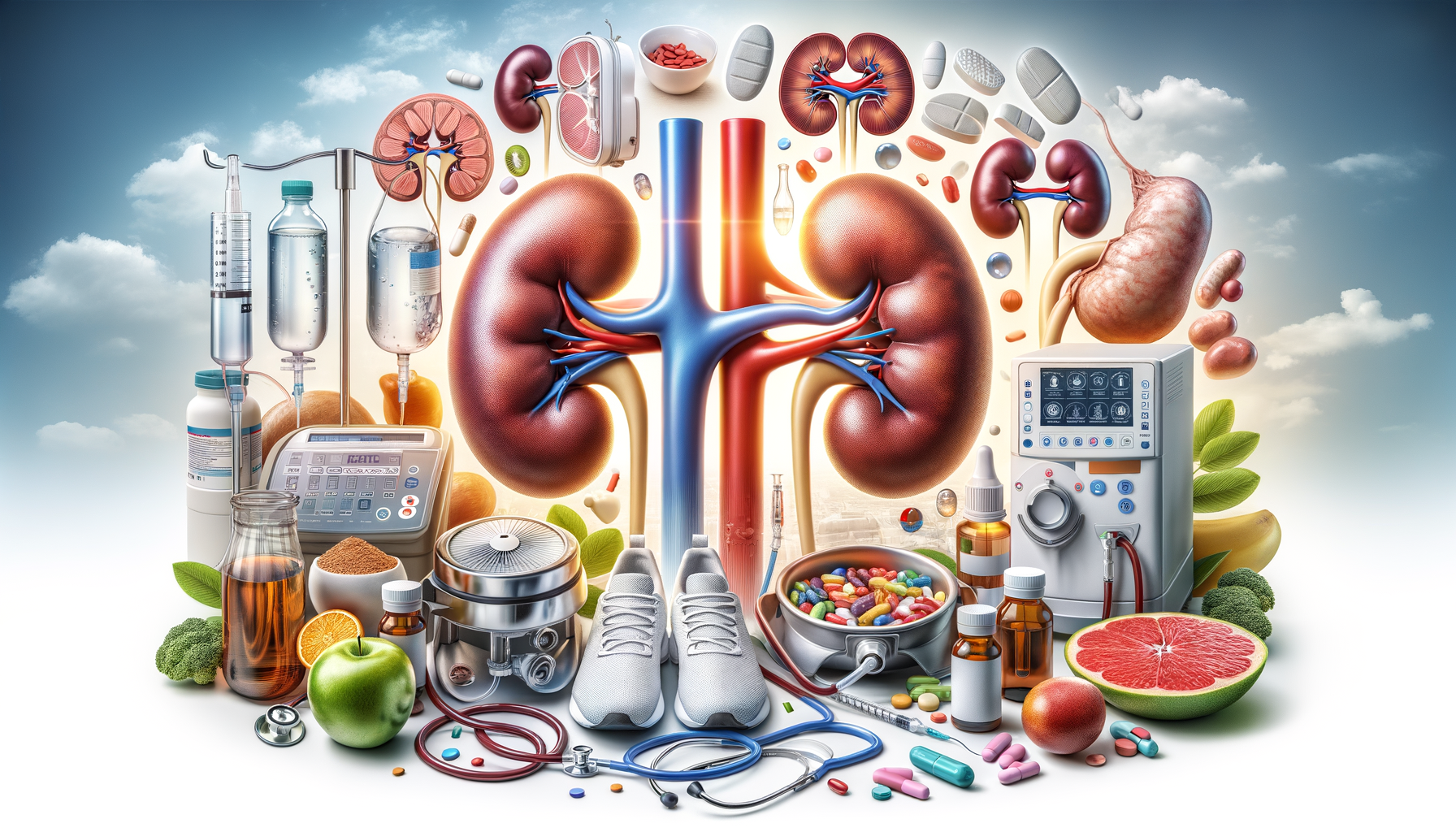Introduction to Kidney Disease Treatment
Kidney disease is a significant global health concern, affecting millions of individuals worldwide. As the kidneys play a crucial role in filtering waste and excess fluids from the blood, maintaining their health is vital for overall well-being. With various stages of kidney disease, understanding the appropriate treatment options is essential for managing the condition effectively. This article explores the treatments available for kidney disease, with a focus on Stage 3 management, offering insights into slowing disease progression and preserving kidney function.
Understanding Treatment for Kidney Disease
Treatment for kidney disease varies depending on the stage and underlying causes. The primary goal is to slow the progression of the disease and prevent complications. Early stages might require lifestyle changes, such as adopting a kidney-friendly diet, managing blood pressure, and controlling blood sugar levels. For more advanced stages, medications may be prescribed to address symptoms and complications.
Key components of treatment include:
- Blood pressure management: High blood pressure is both a cause and a consequence of kidney disease. Medications like ACE inhibitors or ARBs are often used to control it.
- Blood sugar control: For those with diabetes, maintaining optimal blood sugar levels is crucial to prevent further kidney damage.
- Dietary modifications: Reducing salt, phosphorus, and protein intake can help manage symptoms and slow disease progression.
Regular monitoring by healthcare professionals is essential to adjust treatment plans as needed and to detect any changes in kidney function early.
Exploring Kidney Treatment Options
As kidney disease advances, treatment options become more complex. In addition to medications and lifestyle changes, patients might need more intensive interventions. Dialysis and kidney transplantation are significant treatment options for those with severe kidney damage.
Dialysis is a procedure that performs the functions of the kidneys by removing waste and excess fluid from the blood. There are two main types:
- Hemodialysis: This involves using a machine to filter blood outside the body.
- Peritoneal dialysis: This uses the lining of the abdomen to filter blood inside the body.
Kidney transplantation involves replacing a diseased kidney with a healthy one from a donor. This option can significantly improve quality of life, but it requires lifelong medication to prevent organ rejection.
Each treatment option has its benefits and considerations, and the choice depends on individual health conditions, lifestyle, and personal preferences.
Stage 3 Kidney Disease Management
Stage 3 kidney disease is characterized by a moderate decrease in kidney function, with a glomerular filtration rate (GFR) between 30 and 59. Managing this stage effectively is crucial to prevent further progression to more severe stages.
Management strategies include:
- Regular monitoring: Frequent check-ups and blood tests to monitor kidney function and adjust treatment as needed.
- Medication adherence: Taking prescribed medications consistently to manage blood pressure, cholesterol, and other related conditions.
- Lifestyle adjustments: Engaging in regular physical activity, maintaining a balanced diet, and avoiding smoking and excessive alcohol consumption.
Education and support from healthcare providers can empower patients to take an active role in managing their condition, improving outcomes and quality of life.
Conclusion: Navigating Kidney Disease Treatment
Understanding and managing kidney disease requires a comprehensive approach tailored to the individual’s stage and health needs. From lifestyle changes and medication management to advanced treatments like dialysis and transplantation, each option plays a crucial role in maintaining kidney health and preventing progression. For those at Stage 3, proactive management is essential to slow disease advancement and enhance quality of life. By working closely with healthcare providers and making informed decisions, individuals can navigate the complexities of kidney disease treatment with confidence.




Leave a Reply